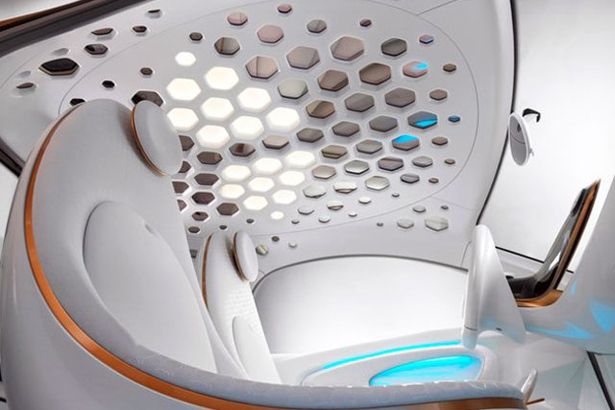Consumer electronics and technology firm Philips has teamed up with chemical specialist BASF to develop OLED panels that can be used in future cars for automatic sunroofs. The hexagonal panels are transparent when switched off, allowing for a clear view outside the vehicle, but block any sunlight when on. They also emit light, giving an in-car ambient lighting effect.
Additionally, the companies can combine the 1.8mm thin OLED technology with equally transparent solar cells, charging the panels during the day (or, at least, a separate, hidden battery), thereby that their night-time use is self-powered.
"This combination allows the driver to enjoy a unique open-space feeling while it generates electricity during the day and pleasantly suffuses the interior with the warm light of the transparent, highly efficient OLEDs at night," said Dr. Felix Görth, head of Organic Light-Emitting Diodes and Organic Photovoltaics at BASF Future Business.
Car sunroofs could also be just the first application for such a technology: "This project provides impressive evidence of new possibilities with OLEDs, and illustrates the potential of Philips’ Lumiblade OLED technology to help create innovative lighting applications that enhance people’s lives," added Dr Dietrich Bertram, general manager of OLED Lighting at Philips.
The two companies have so far put the OLED panels into the roof of a prototype car, but there's no news yet as to when this may be commercially adopted.

